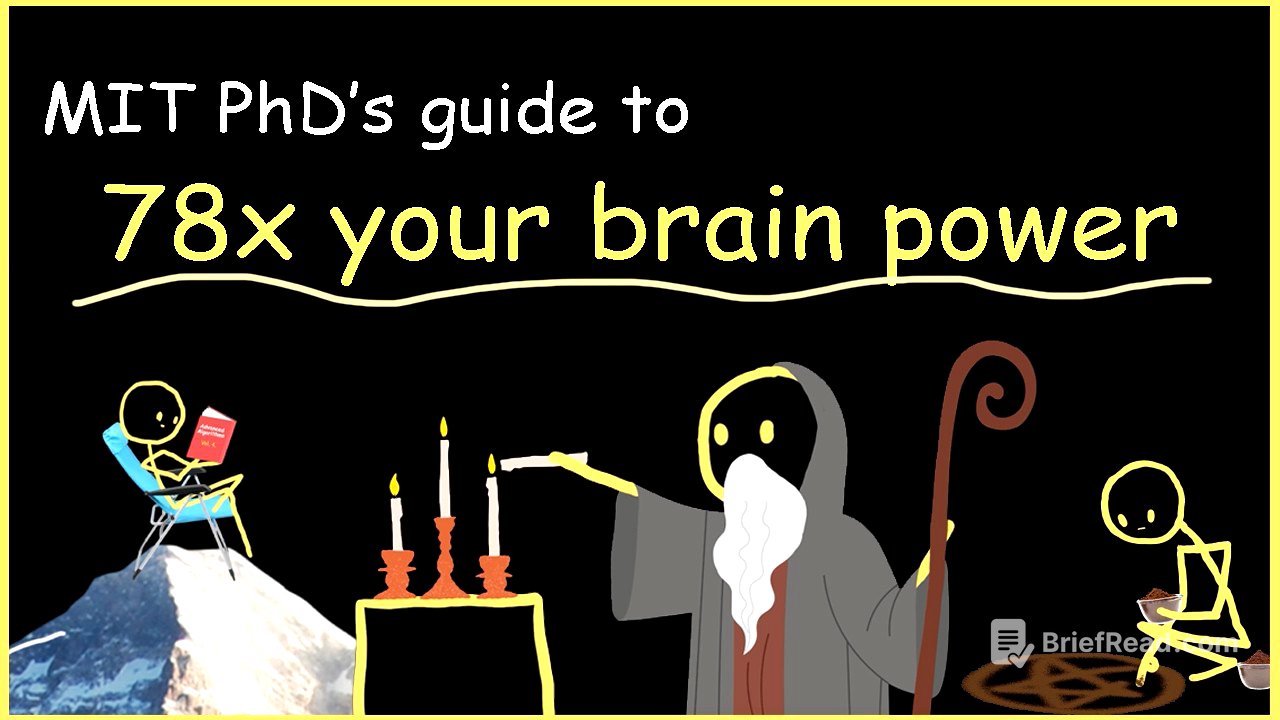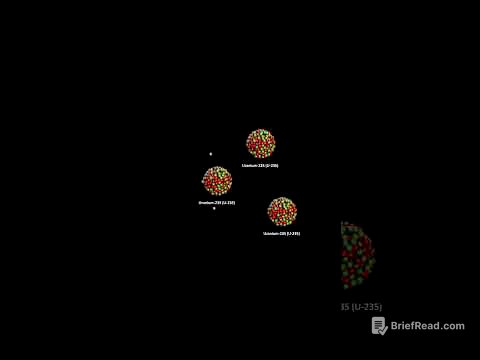TLDR;
This video summarizes Cal Newport's "Deep Work" and provides actionable methods to improve focus, productivity, and overall quality of work. It emphasizes the importance of deep work in a globalized and competitive world, where the ability to concentrate deeply is a valuable skill. The video outlines strategies such as optimizing the work environment, time management, creating rituals, utilizing idle time, multitasking effectively, reducing responsibilities, avoiding distractions, planning the day effectively, ending the day properly, and engaging in meaningful activities during leisure time.
- Mastering deep work is essential for success in a competitive global environment.
- Strategic time management and environmental control are key to achieving focus.
- Integrating meaningful leisure activities enhances overall productivity and well-being.
Intro [0:00]
The video introduces deep work as a crucial skill that can significantly increase earning potential. It highlights that in a competitive world, mastering the ability to focus deeply is like having a technological advantage over others. The video references Cal Newport's book "Deep Work" and positions him as a credible source due to his background as a theoretical computer scientist from MIT and his proven track record of high productivity. The intro also mentions a study showing that top-performing students achieve more by focusing better, not by studying longer.
Why You Need To Learn Deep Work [1:26]
The importance of deep work is emphasized due to globalization and commoditization of low to mid-level knowledge work. To compete for higher earnings, individuals need to become highly skilled in a specific area. Deep work enhances productivity, allowing individuals to accomplish more in less time, freeing up time for leisure and personal activities.
Method 1 [3:07]
The first method involves being selective about the work environment. The video uses JK Rowling's experience of writing Harry Potter in a luxurious hotel suite to illustrate how a conducive environment can eliminate distractions and enhance creativity. The financial investment in the workspace can also motivate the brain to focus and work efficiently.
Method 2 [3:56]
The second method focuses on creating "cast iron" time boxes, which means strictly adhering to scheduled deep work periods without any distractions. The video uses an analogy of a mental wall to explain that every distraction creates holes in this wall, weakening the ability to concentrate. Resisting distractions strengthens the ability to maintain focus during scheduled deep work.
Method 3 [5:39]
The third method addresses the importance of planning the day effectively. Humans often misjudge how much time tasks will take, so the video suggests scheduling similar tasks in batches to reduce energy wasted on task switching. It also recommends scheduling deep work early in the day when brain energy is highest and including buffer time for unexpected delays.
Method 4 [6:37]
Method four involves creating a ritual to perform before entering deep work. This ritual can be simple, like making coffee, or more elaborate. Over time, the brain associates the ritual with deep work, making it easier to enter a focused state automatically.
Method 5 [7:16]
The fifth method is to use idle gaps productively. Instead of filling moments of boredom with distractions like social media, the video suggests practicing being comfortable with silence. This trains the brain to handle boredom and stress, making it easier to focus on difficult problems.
Method 6 [8:28]
Method six discusses multitasking effectively. Instead of switching between cognitive tasks, which reduces brainpower, the video suggests using activities that require no mental effort, such as walking, to think deeply about creative problems. This allows the brain to practice focusing on one topic from start to finish without distraction.
Method 7 [10:10]
The seventh method involves reducing responsibilities to free up time and energy for important tasks. By saying no to less important commitments, individuals can focus on their goals and achieve greater success.
Method 8 [10:53]
Method eight warns against the "any benefit mind trap," where the brain rationalizes low-value tasks by focusing on the minimal benefits they provide. The video advises identifying high-ROI tasks and dedicating deep work time to those activities to improve life.
Method 9 [11:48]
The ninth method focuses on ending the day properly. Instead of trying to squeeze in extra work at night, the video suggests spending the last 15 minutes of the workday listing unresolved tasks and creating a plan for tackling them the next day. This allows the brain to relax and recharge.
Method 10 [12:22]
The tenth method emphasizes relaxing the right way. Instead of passively watching TV, the video suggests engaging in adventurous and meaningful activities during free time. This makes individuals more determined to protect their leisure time and enhances brain efficiency. The video references psychologist Mihi Chick Mihi's findings that the happiest people frequently stretch their brain's capabilities through difficult and meaningful activities, engaging in deep work and flow states.









